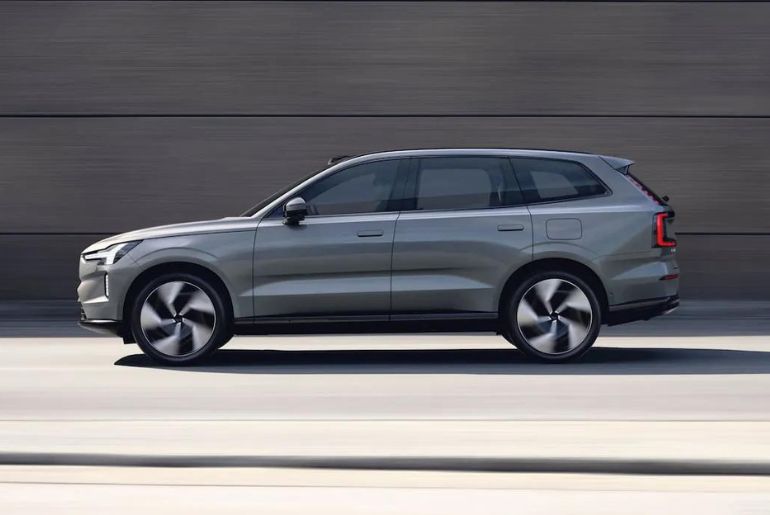The brand-new Volvo EX90 electric SUV—which has the “world’s first EV battery passport”—will soon go on sale. Volvo is introducing the EV battery passport to provide important details to prospective purchasers, such as the composition, the source of the battery’s ingredients, and the battery’s carbon footprint.
One of the first established automakers to pledge to switch to electric vehicles by 2030 was Volvo. And it still keeps its word on that pledge now.
Thus far, the automaker’s dedication has paid off as new all the electric vehicles are being introduced in important international markets. Last year, Volvo introduced the EX30, its smallest and least expensive electric vehicle. The EX30 is making a big impression immediately, in spite of its small size.
Volvo sold over 14,500 EX30 models in the first three months of 2024, surpassing the EC40 (6,000) while closing in on the EX40 (17,400).
The EX30 pushed Volvo to a new all-time sales record in March, as it’s already living up to its promise of being a profitable growth driver. Volvo will sell the EX30 in over 90 countries by the end of the year.
Volvo is also planning to begin production of its flagship three-row EX90 electric SUV soon. After delaying it last year, Volvo said EX90 production is expected to start in the first half of 2024.
Volvo is launching “the world’s first EV battery passport” set to debut on the new EX90, the automaker said.
The solution was developed by Volvo and UK startup Circulor over the past five years. Using blockchain technology, it will show buyers information about the vehicle’s battery, such as its composition, where its materials are from, its recycled content, and its carbon footprint.
Battery passports will be mandatory for new electric cars sold in Europe starting in February 2027. John Helveston, an assistant professor of engineering and systems management at George Washington University, said: “Battery passports are an important development for consumers because they will track the state of the vehicle’s battery health over time as the vehicle is charged and discharged. This is especially important for buyers in the used car market who otherwise have no information about battery health. Mileage, for example, doesn’t fully reflect battery health – what matters much more is how the battery was cycled over its life (e.g. slow or fast, how “deep”, etc.). Future customers will be able to learn much more about the vehicle they’re buying from battery passports.”
Volvo is getting ahead of the pack, as Vanessa Butani, the company’s head of global sustainability, said.
“It’s really important for us to be a pioneer and a leader,” Butani said. By launching it three years ahead of the deadline, Volvo aims to be more transparent with buyers as it moves toward an all-EV future.

